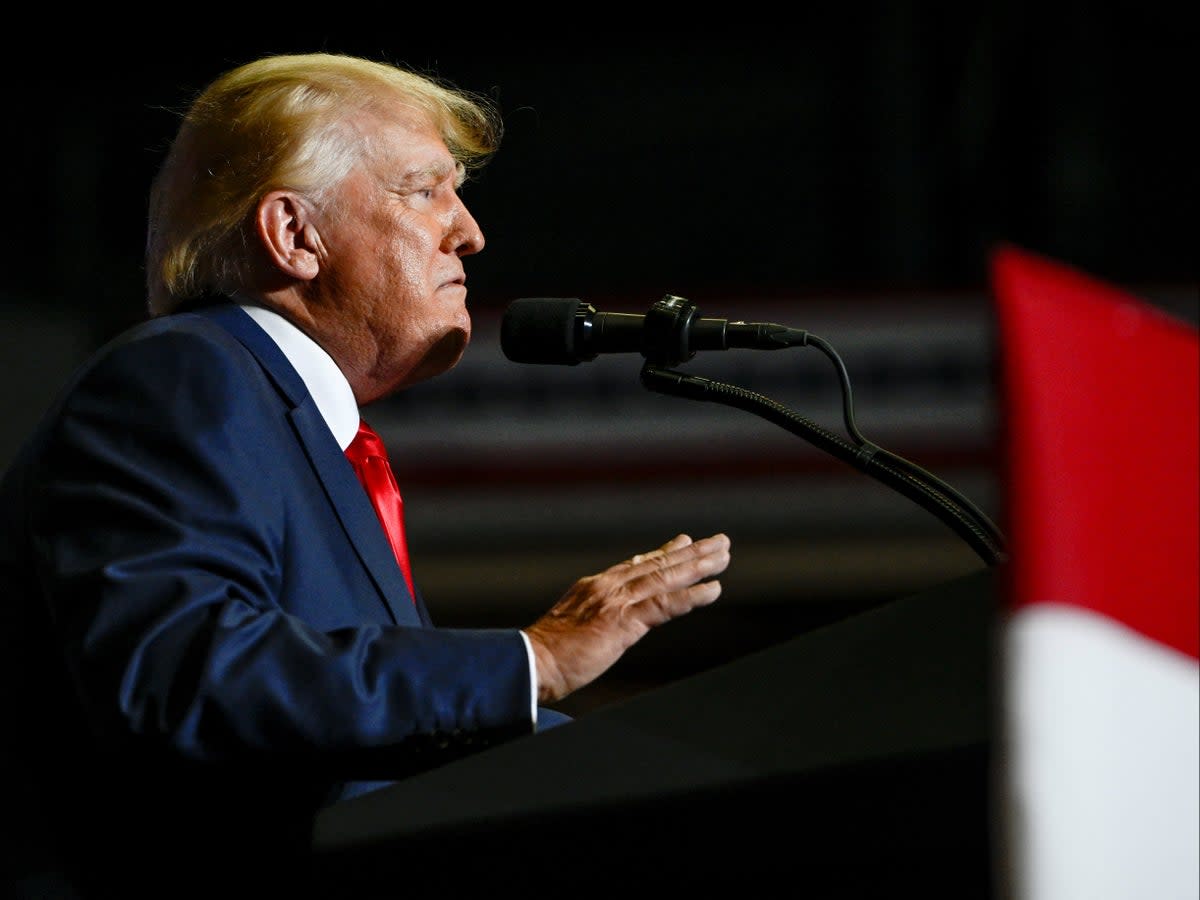Voices: Trump turns his attention to North Carolina – will Democrats?

- Oops!Something went wrong.Please try again later.
- Oops!Something went wrong.Please try again later.
- Oops!Something went wrong.Please try again later.
- Oops!Something went wrong.Please try again later.
On Friday, former president Donald Trump will visit Wilmington, North Carolina, to campaign for his preferred candidates, Senate nominee Ted Budd. That particular election is Mr Trump’s opportunity to remake the Senate in his image.
Retiring Senator Richard Burr led the Senate Intelligence Committee during the probe into Russia’s interference in the 2016 presidential election and Democrats saw him as a fair arbiter. Furthermore, he voted to convict Mr Trump for his role in the January 6 riot.
GOP Rep Ted Budd, by comparison, voted to object to the 2020 presidential election results, voted against the bipartisan gun deal that Mr Burr supported and fellow North Carolina Republican Senator Thom Tillis negotiated (he owns a gun shop and shooting range), and praised the Supreme Court for its Dobbs v Jackson decision which overturned Roe v Wade. Mr Trump endorsed Mr Budd last year instead of former governor Pat McCrory, who lost his reelection in 2016 to Democratic Attorney General Roy Cooper despite the fact Mr Trump won the state in 2016 by a bigger margin than Mitt Romney did in 2012.
Nevertheless, in an election cycle where Republican candidates like Herschel Walker in Georgia, JD Vance in Ohio, Mehmet Oz in Pennsylvania and Blake Masters in Arizona have caused headaches for Republicans, he’s managed to not cause controversy. That plays into North Carolina voters’ desire to not elect firebrands–the three-decade tenure of the racist and homophobic Republican Jesse Helms and the scandal-ridden Democrat John Edwards notwithstanding–and would rather pick low-key senators who do not court the national spotlight.
Similarly, his relative anonymity means he doesn’t inflame Democratic frustration the same way that incumbent senators like Ron Johnson of Wisconsin and Marco Rubio of Florida do, and anger often means dollars and energy.
But that comes at a cost for Cheri Beasley, who is probably the best type of candidate that Democrats could run in the state. Mr Cooper named Ms Beasley to serve as the first Black woman to serve as the chief justice of the state’s supreme court. Ms Beasley lost her race for the seat in 2020. After a brief break, she decided to run for the open seat and state Senator Jeff Jackson stepped aside in the primary to clear the field for her while Republicans duked it out.
North Carolina is the exact type of state where Democrats can be competetive statewide. Like Georgia, it has a large college-educated population with numerous public universities.
But Democrats have lost four consecutive Senate races since 2010.
North Carolina took a sharp rightward turn in 2010 after the Great Recession and Mr Tillis beat Kay Hagan in 2014, given Barack Obama’s growing unpopularity. Jonathan Weisman at The New York Times and Ursula Perano and Sam Brodey of The Daily Beast have both written pieces recently about how Democrats have gotten their hopes up that this might be the year that they win only to have their hopes crushed.
But there is some evidence that Democrats might have a chance to win the seat. A new poll from Emerson College released Tuesday showed that Mr Budd leads Ms Beasley by three points, but with his overall lead diminishing. Not unlike a tournament game in the Atlantic Coast Conference (which announced it will move its offices from Greensboro to Charlotte), this race is still largely a jump ball match-up.

